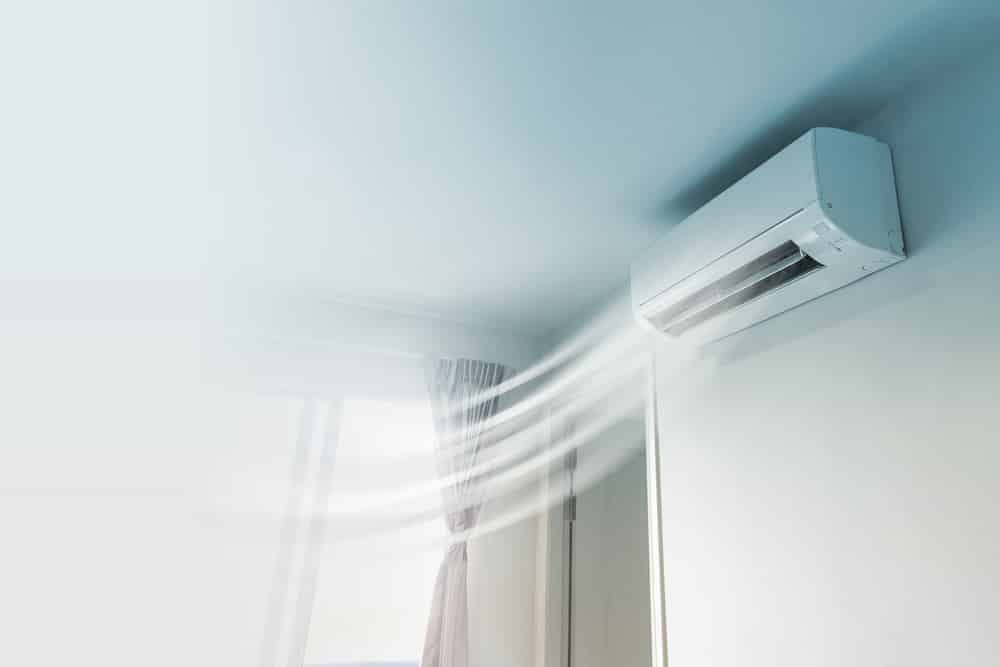Split system air conditioning has revolutionized indoor climate control, offering homeowners and businesses a versatile, efficient, and quiet cooling solution. Comprising an outdoor compressor unit and one or more indoor air handling units, split systems provide precise temperature regulation for individual rooms or zones. Below we will delve into the features, benefits, installation considerations, and maintenance tips for split system air conditioning, highlighting why it’s a popular choice for modern cooling needs.
Split System Air Conditioning
Features of Split System Air Conditioning
- Outdoor and Indoor Units: The outdoor unit contains the compressor, condenser coil, and fan, while the indoor unit(s) house the evaporator coil and air distribution components. This split configuration allows for flexible installation options and quieter operation indoors.
- Individual Zoning: Split systems can be configured to provide cooling to specific rooms or zones, allowing for personalized comfort settings and energy savings. Each indoor unit can be independently controlled, optimizing comfort and efficiency based on occupancy and usage patterns.
- Energy Efficiency: Split system air conditioners typically feature high-efficiency compressors, variable speed fans, and advanced refrigerant technologies, maximizing energy savings and reducing utility costs. Inverter technology, which adjusts compressor speed to match cooling demands, further enhances energy efficiency and comfort.
- Quiet Operation: Compared to traditional window or central air conditioning systems, split systems operate quietly, with the noisy compressor unit located outdoors. This minimizes indoor noise levels, making split systems ideal for bedrooms, offices, and other noise-sensitive areas.
Benefits of Split System Air Conditioning
- Enhanced Comfort: Split systems provide precise temperature control and dehumidification, creating a comfortable indoor environment year-round. Individual zoning capabilities allow occupants to customize settings to their preferences, eliminating hot spots and ensuring consistent cooling throughout the space.
- Improved Indoor Air Quality: Split systems feature advanced filtration systems that capture airborne pollutants, allergens, and contaminants, improving indoor air quality and promoting healthier living environments. Some models offer additional features such as ionization and UV sterilization for enhanced air purification.
- Space-Saving Design: With their compact indoor units and minimal ductwork requirements, split systems are an ideal cooling solution for homes and buildings with limited space or architectural constraints. They eliminate the need for bulky window units and offer a sleek, modern aesthetic.
Installation Considerations
- Proper Sizing: Correct sizing of the split system is essential for efficient operation and optimal performance. A qualified HVAC technician should assess the cooling load and airflow requirements of the space to determine the appropriate capacity and placement of indoor units.
- Location of Indoor Units: Indoor units should be strategically positioned to ensure even air distribution and minimize obstructions. Factors such as room size, layout, and furniture placement should be taken into account to maximize cooling effectiveness.
- Electrical Requirements: Split systems require electrical wiring to connect the outdoor compressor unit to the indoor air handling units. Adequate electrical supply and proper wiring installation are crucial for safe and reliable operation.
Maintenance Tips for Split System Air Conditioning
- Regular Cleaning: Keep indoor and outdoor units clean and free from dirt, dust, and debris to maintain optimal airflow and efficiency. Clean or replace air filters as recommended by the manufacturer to ensure proper air filtration and system performance.
- Professional Maintenance: Schedule annual maintenance checks with a licensed HVAC technician to inspect, clean, and tune up your split system air conditioner. Professional maintenance helps identify and address potential issues before they escalate into costly repairs or breakdowns.
- Check Refrigerant Levels: Monitor refrigerant levels and ensure they are within the manufacturer’s recommended range. Low refrigerant levels can indicate leaks or other system issues that require professional attention.
Split system air conditioning offers a versatile, efficient, and quiet cooling solution for homes, offices, and commercial spaces. With individual zoning capabilities, energy-efficient operation, and advanced air purification features, split systems provide superior comfort and indoor air quality year-round. By understanding the features, benefits, and installation considerations of split system air conditioning, homeowners and businesses can make informed decisions to create comfortable, healthy, and energy-efficient indoor environments.
We can supply and install leading AC brands to keep you cool in the hotter months and warmer in the winter. Get in touch today for a free quote.


